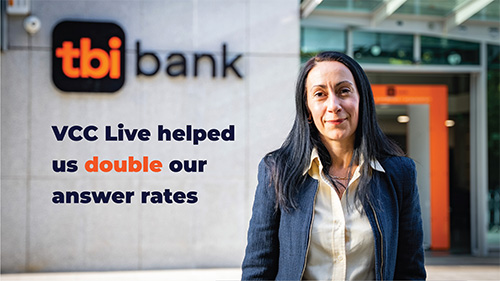“Excuse me, do you speak English?” This is one of the typical opening sentences that sales and customer service agents start their conversations with when the person’s language is likely to make communication difficult. Can you overcome language barriers?
In today’s globalized world, businesses are constantly expanding into new geographies, while focusing on creating a solid online presence. As a result, call center operations have changed considerably in the last decade, with call centers now operating 24/7, and providing customer service to customers all around the world.
This lead call center agents to experiencing language barriers with customers and prospects during phone conversations. These are not just different languages, but also regional dialects and accents, as well as bad phone connectivity.
Experiencing language barriers can easily cause frustration on both the agents’ and customers’ side, while preventing call centers from providing accurate and efficient customer service to your clients. You may not think so but even one unhappy customer can harm your business’ reputation. In fact, a recent study has shown that 95% of customers tell at least one other person about bad customer experiences with a company.
So, if you’re lost in translation, make sure to check out our article and find out how you can efficiently overcome language barriers at the call center.
Excuse me, it’s Greek to me
First things first: the call center is not the place to dazzle customers with your “Shakespearean” vocabulary. Instead, always be clear about what you are trying to communicate and avoid using slang or culturally specific idioms.
Furthermore, during any conversation with customers with limited language skills, our best and safest advice is to keep your message clear and simple. If you want to quickly overcome language barriers, then try and choose simple words, phrases, as well as short sentences.
In fact, whenever you sense there is a language barrier during a conversation, just simplify your message in order to make the communication more convenient to the customer. You’ll see it will make all the difference.
Talk slower, not louder
Always bear in mind that speaking louder won’t help you deliver your message. People of a different language can just hear fine, so make sure not to raise your voice as it may give customers the impression that you are annoyed.
Instead, when it comes to communicating with a customer who has difficulties to speak your language, always make sure to slow down your speech. The key to overcoming language barriers lies in your attitude as well, so you’ll really need to try your best to accommodate your customers’ needs.
Another common mistake call center agents often commit when experiencing language barriers with customers is that they over-articulate their words. Your goal here, however, is to convey your message as clearly as possible, and not to act like an elementary school teacher.
Use omnichannel communication to overcome language barriers
Amongst other things, one major advantage of multichannel communication is that customers can now select from a number of channels – including phone, online forms, email, SMS and chat – to communicate with companies.
By offering omnichannel communication, multilingual customer service departments allow their customers to contact their support teams on various channels. As a result, customers who have difficulties using phone-based support options due to language barriers are able to contact customer service via other channels, such as email or chat. In fact, this is a great opportunity to reduce the number of occasions when customers and agents face language barrier.
Don’t fall, however, into the mistake of transferring your customers between your channels. As we already mentioned in a previous article, customers easily get frustrated when they are transferred through several customer service channels while having to repeat information over and over again – especially if they are already experiencing language barriers with your customer service.
Instead, try and focus on channels your customers actually want to use. Always make sure that agents provide the same quality of customer service on each of your channels.
Language barriers may result in awkward – and even negative – customer experiences, however, it’s definitely not impossible to overcome them. Follow our tips and allow your customers to finish customer service conversations happy and satisfied.



















